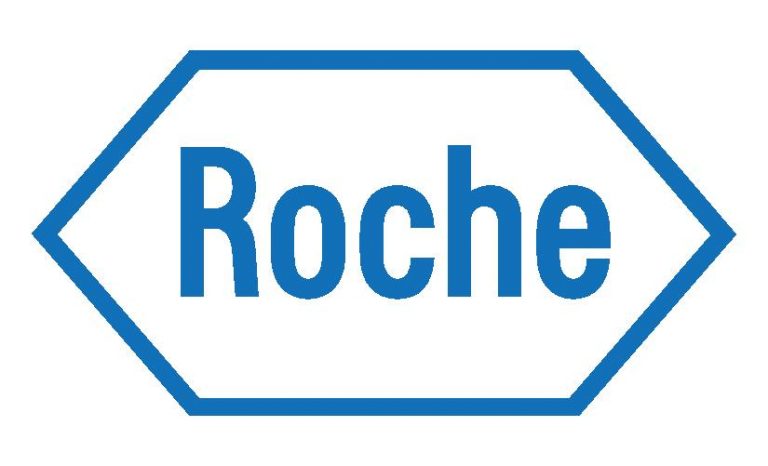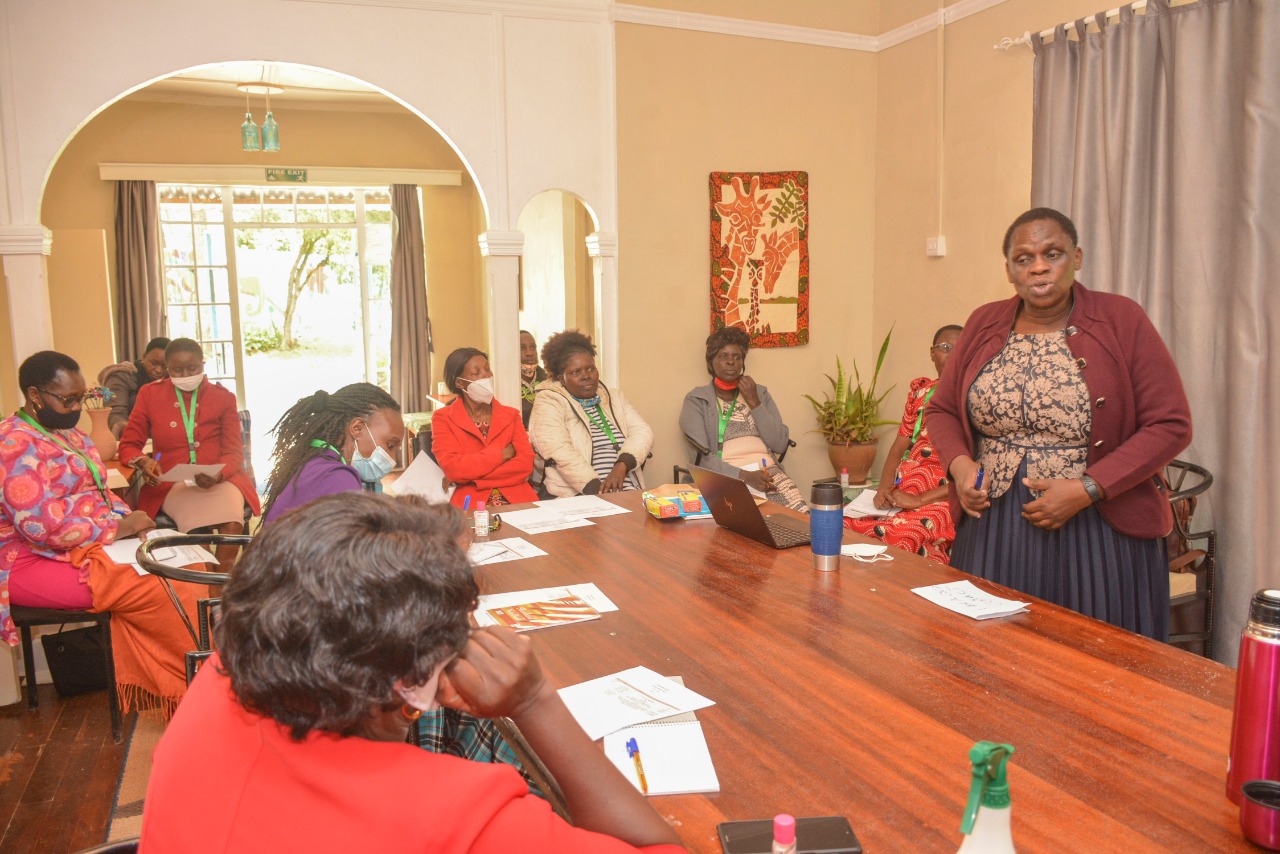Improving Health Communication by Health Care Professionals (HCPs) and Communities to maximize quality outcomes in patient care delivery across sub-Saharan Africa
3rd August 2020-30th September 2020
Lead Faculty: Abraham Kiprop Mulwo, Ph.D.
Development Communication Specialist
Associate Dean, School of Information Sciences,
Senior Lecturer and Researcher, Development Communication
Moi University, P.O Box 3900, Eldoret, Kenya.
Co-Leads:
- Gloria Kitur – Program Manager, Outreach, ICI
- Fridah Tallam – Clinic Administrator, ICI_CRC
This educational activity is provided by International Cancer Institute (ICI)
This activity is supported by educational grant from Roche.
Faculty
- Ruth Musembi – Communications& Productivity Consultant
- Kentice Tikolo – Public Relations Consultant
- Fredrick Chite Asirwa MD – Consultant Physician, Medical Oncologist & Hematologist
Accreditation is by KMPDC, KPPB and COC
ICI Education & Training Mission Statement
The ICI Preceptorship Program Mission is to measurably contribute to cancer patients’ safety and health outcomes and to support practice improvement by providing CME/CPD activities that enhance the ability of Physicians and other health-care team members to deliver quality and optimal healthcare services.
Purpose
The purpose of the ICI Preceptorship Program is to develop educational activities that clearly link the needs of the learner/participants with the planning process, format and delivery of each activity, resulting in high quality continuing medical education/continued Professional development opportunities that will increase the knowledge, competence and performance of healthcare providers.
Content Areas
The ICI Preceptorship Program activities include practical, evidence-based, best clinical practice information for a broad variety of common oncology and hematology conditions, innovations in primary and specialty patient care in NCDs, new procedural training and specialty fora. Appropriate content for each course is determined based on the results of a practice gap analysis relative to the target audience’s scope of practice, as well as the identified expected outcomes. Content is free of commercial bias.
General Target Audience: ICI Preceptorship/CME/CPD activities focus on the needs of generalist and specialist physicians and other multidisciplinary health-care team members at ICI affiliated cancer centers nationally and in sub-Saharan Africa as appropriate.
Type of Activities Provided by ICI
In order to accomplish our educational goals, ICI CME uses a range of activity formats based on the content and desired results of the activity. Current offerings include live and video conferenced activities, live regularly scheduled series, internet CME activities, enduring materials and hands-on skills workshops. ICI also jointly sponsors activities with regional specialty societies, non-profit educational organizations and government agencies when mutually desired goals and outcomes are best achieved by such relationships.
Expected Outcomes of the ICI Preceptorship Program
ICI Preceptorship/CME/CPD is committed to assessing the impact and effectiveness of its CME/CPD Program. ICI courses are designed to: increase knowledge of new treatments, diagnostic tools and procedures; improve compliance with specific evidence-based standard of care protocols; improve competence, performance and/or patient outcomes; and promote efficient use of resources. We employ assessment methods to evaluate the extent to which our activities result in changes in knowledge, competence and performance. CME activities in conjunction with quality improvement projects have measurable outcomes to report. An emphasis during the planning process is placed on intended learning and desired change in knowledge, competence and performance. The ICI Education and Training Office works in collaboration with other departments/offices of the International Cancer Institute and its partners who are involved and interested in quality improvement processes and patient safety.
Target Audience
The primary target audience for this course comprise the clinical and non-clinical staff members of ICI or ICI affiliated partners, in addition to external health care providers who include but are not limited to palliative care specialists, physicians, medical officers, oncology clinical officers, oncology nurses, Oncology pharmacists, data managers, IT officers, Program Managers, Program coordinators, M&E Officers, System developers, Palliative care nurses, Office administrators, Transport and Logistics Officers, General Managers, Directors, Security officers, Office assistants among others. This course is structured in two levels: level one course content is targeted for both operational level and management level health professionals while level two content is specific to managerial level health care providers. In general, the course is intended to improve the aspects of communication among health care professionals who form a multidisciplinary team in cancer care management across sub-Saharan Africa.
Statement of Need
New developments in cancer treatment and care are often not widely disseminated, especially in sub-Saharan Africa, resulting in patients not receiving the best or most up-to-date care. Health care providers need current information in all factors related to cancer and NCD treatment, including screening, diagnosing, surgical and non-surgical strategies and overall management of patients with cancer and other NCDs.
This course is important since it will enable the participants manage communication in delivery of service, ultimately leading to patient satisfaction, organizational growth and enhance organizational image of ICI and its partners.
Learning objectives
At the end of this educational activity, participants should be able:
At the end of this educational activity, participants should be able:
- To understand interpersonal communication use in patient care.
- To identify effective communication channels and to apply effective communication styles in a healthcare setting.
- To understand organizational behavior issues in health communication
- To have knowledge of the role of communication in decision making, managing conflict and in problem solving.
- To know how to apply communication in resource mobilization.
- To understand behavior, change communication in managing cancer care.
- To understand patient-centered communication and shared decision-making processes.
- Understand the various aspects of communication in cancer care
- To evaluate effective communications strategies required in cancer care.
- To understand ethical, legal and social issues in communicating about cancer programs.
- To acquire knowledge in developing educational & training materials for advocacy in cancer care.
Disclosure of Conflicts of Interest
International Cancer Institute (ICI) requires instructors, planners, managers and other individuals and their spouse/life partner who are in a position to control the content of this activity to disclose any real or apparent conflict of interest they may have as related to the content of this activity. All identified conflicts of interest are thoroughly vetted by ICI for fair balance, scientific objectivity of studies mentioned in the materials or used as the basis for content, and appropriateness of patient care recommendations. The faculty must report any financial relationships or contractual relationships they or their spouse/life partner have with commercial interests related to the content of this continuing education activity.
Disclaimer
Participants have an implied responsibility to use the newly acquired information to enhance patient outcomes and their own professional development. The information presented in this activity is not meant to serve as a guideline for patient or client management.
Disclosure of Unlabeled Use
This educational activity may contain discussion of published and/or investigational uses of agents that are not indicated by the FDA. The planners of this activity do not recommend the use of any agent outside of the labeled indications.
Method of Participation and Request for Credit
To receive credit for this activity, participants must review the activity information including learning objectives and faculty/planner disclosures and actively participate in the educational activity. Upon successfully completing the post-test with a score of 75% or better and the post-activity evaluation, your certificate will be made available immediately.
The Program
LECTURES
The Course work & lectures will be conducted over a period of 9 weeks of the program. However, both management level and operational level participants will attend week 1 through 6, after which only management level participants will proceed to week 6 through 9.
Level 1: Management and Operations level HCPs
Orientation to the Course (Prof. Chite) Monday 3rd August 2020 (4.30-5:00P.M. EAT)
- Introduction to Health Communication (Dr. Mulwo) Wednesday 5th August 2020 4:00-5:30 P.M. EAT
- How to promote effective public Health Campaigns for screening and advocacy (Dr. Mulwo) Monday 10th August 2020 4:00-5:30 P.M. EAT
- How to apply effective communication styles in organizations (Ruth) Wednesday 12th August 2020 4:00-5:30 P.M. EAT
- Role of communication in Conflict Management and problem solving (Dr. Mulwo) Monday 17th August 2020 4:00-5:30 P.M. EAT
- Development of patient education materials (Kentice) Wednesday 19th August 2020 4:00-5:30 P.M. EAT
- Use of social media in communicating health messages (Ruth) Monday 24th August 2020 4:00-5:30 P.M. EAT
- Behavior and Social change communication (Kentice) Wednesday 26th August 2020 4:00-5:30 P.M. EAT
- Enhancing team Communication (Ruth) Monday 31st August 2020 4:00-5:30 P.M. EAT
- Communication, Branding and Image (Kentice) Wednesday 2nd September 2020 4:00-5:30 P.M. EAT
- Public Speaking & Presentation Skills (Ruth) Monday 7th September 2020 4:00-5:30 P.M. EAT
- Course Examination in Health Communication (All Faculty) Wednesday 9th September 2020 4:00-5:30P.M. EAT
Level 2: Management level HCPs only
- Using communication to optimize decision making (Ruth) Monday 14th September 2020 4:00-5:30 P.M. EAT
- Effective use of communication in resource mobilization (Kentice) Wednesday 16th September 2020 4:00-5:30 P.M. EAT
- How to effectively manage change within an organization (Ruth) Monday 21st September 2020 4:00-5:30 P.M. EAT
- Development of community health workers training material (Kentice) Wednesday 23rd September 2020 4:00-5:30 P.M. EAT
- Effective Leadership styles (Dr. Mulwo) Monday 28th September 2020 4:00-5:30 P.M. EAT
- Course Examination in Management level Health Communication (All Faculty) Wednesday 30th September 2020 4:00-5:30 P.M. EAT
COURSE SCHEDULE
| Week 1 | Week 2 | Week 3 | Week 4 | Week 5 | Week 6 | Week 7 | Week 8 | Week 9 | Week 10 |
| 3rd August | 10-August | 17-August | 24-August | 24-August | 31-August | 7-September | 14-September | 21-September | 28-September |
| Chite | Dr. Mulwo | Dr. Mulwo | Ruth | Ruth | Ruth | Ruth | Ruth | Ruth |
Dr. Mulwo |
| Dr. Mulwo | Ruth | Kentice | Kentice | Kentice | Dr. Mulwo | Kentice | Kentice | Kentice |
Dr. Mulwo |
NCC 100: ICI Health Communication Preceptorship Course Schedule
Participants should be willing to spend at least 4 hours per week on this online course over a period of 9 weeks. NOTE: The last weeks for both level 1 and level 2 will be for examinations and course evaluations.
All those interested in registration to this course, please send your information to education@intercancer.com or info@intercancer.com
Acknowledgement
ICI acknowledges that funding for this preceptorship training has been proudly supported by Roche as part of ICI-Roche Shining Towers Project (STP).

Course Reviews
No Reviews found for this course.








